8 February 2023
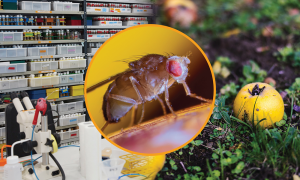
EMBL researchers are stepping outside the lab and thinking outside the box to understand the basic principles that underlie the development and evolution of organismal characteristics.
6 May 2022
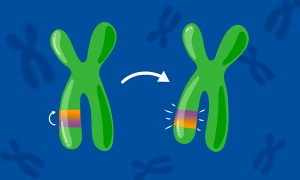
Researchers at EMBL Heidelberg found that inversions in the human genome are more common than previously thought, which impacts our understanding of certain genetic diseases.
SCIENCE & TECHNOLOGY
2022
sciencescience-technology
8 September 2020
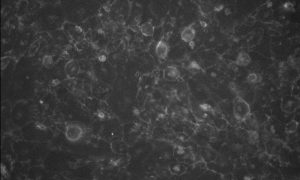
Researchers have found the cause of dilated cardiomyopathy – a leading cause of heart failure – and identified a potential treatment for it: a drug already used to treat acne.
SCIENCE & TECHNOLOGY
2020
sciencescience-technology
27 July 2020
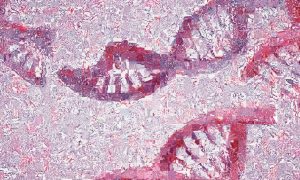
Researchers have developed an artificial intelligence algorithm that uses computer vision to analyse tissue samples from cancer patients. The algorithm can distinguish between healthy and cancerous tissues, and can also identify patterns DNA and RNA changes in tumours.
SCIENCE & TECHNOLOGY
2020
sciencescience-technology
24 June 2020
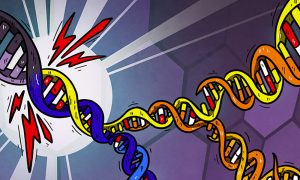
DNA damage caused by chemical mutagens is not repaired immediately and can create more genetic diversity in tumours.
SCIENCE & TECHNOLOGY
2020
sciencescience-technology
26 May 2020

EMBL scientists have performed a large-scale analysis of over 4700 SARS-CoV-2 genome sequences. They found that many of the most interesting changes in the SARS-CoV-2 genome that have been reported so far are likely to be technical artefacts, rather than biological mutations.
SCIENCE & TECHNOLOGY
2020
sciencescience-technology
6 May 2020
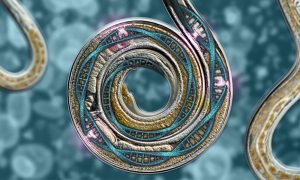
DNA mutations are caused by a combination of DNA damage and repair, shows study by EMBL-EBI and collaborators.
SCIENCE & TECHNOLOGY
2020
sciencescience-technology
5 February 2020
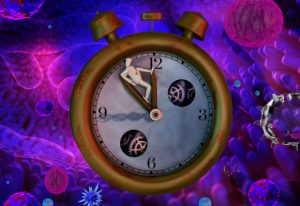
EMBL co-leads most comprehensive study of genetic causes of cancer
SCIENCE & TECHNOLOGY
2020
sciencescience-technology
12 September 2013
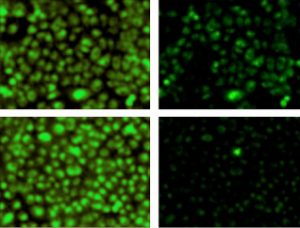
Scientists at the European Molecular Biology Laboratory (EMBL) in Heidelberg and Regensburg University, both in Germany, and the University of Lisboa, in Portugal, have discovered a promising potential drug target for cystic fibrosis. Their work, published online today in Cell, also uncovers a…
SCIENCE & TECHNOLOGY
2013
sciencescience-technology
31 January 2013
Scientists at the EMBL-European Bioinformatics Institute (EMBL-EBI) and the MRC Laboratory of Molecular Biology in the UK have discovered how our genome keeps the effects of mutations in check. The discovery, published in the journal Cell, will help in the study of diseases such as cancer and…
SCIENCE & TECHNOLOGY
2013
sciencescience-technology
22 April 2012
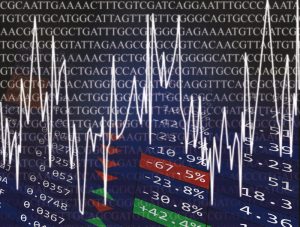
Just as banks store away only the most valuable possessions in the most secure safes, cells prioritise which genes they guard most closely, researchers at the European Molecular Biology Laboratory’s European Bioinformatics Institute (EMBL-EBI) have found. The study, published online today…
SCIENCE & TECHNOLOGY
2012
sciencescience-technology
19 January 2012
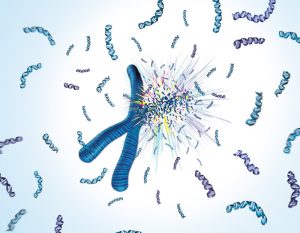
An inherited mutation in a gene known as the guardian of the genome is likely the link between exploding chromosomes and some particularly aggressive types of cancer, scientists at the European Molecular Biology Laboratory (EMBL), the German Cancer Research Centre (DKFZ) and the University…
SCIENCE & TECHNOLOGY
2012
sciencescience-technology
2 February 2011
A detailed analysis of data from 185 human genomes sequenced in the course of the 1000 Genomes Project, by scientists at the European Molecular Biology Laboratory (EMBL) in Heidelberg, Germany, in collaboration with researchers at the Wellcome Trust Sanger Institute in Cambridge, UK, as well as the…
SCIENCE & TECHNOLOGY
2011
sciencescience-technology
8 April 2008
Leukaemia – cancer of blood or bone marrow – is caused by mutations that allow defective blood cells to accumulate and displace healthy blood. To devise effective therapies it is crucial to know which mutations cause leukaemia and which cell type gives rise to leukaemic cells. Researchers from…
SCIENCE & TECHNOLOGY
2008
sciencescience-technology
8 July 2007
Researchers from the European Molecular Biology Laboratory (EMBL) and the University of Michigan have discovered a gene that protects us against a serious kidney disease. In the current online issue of Nature Genetics they report that mutations in the gene cause nephronopthisis (NPHP) in humans and…
SCIENCE & TECHNOLOGY
2007
sciencescience-technology
25 February 2007
In 1918, 50 million people died during a worldwide influenza pandemic caused by mutation of a bird-specific strain of the influenza virus. Recently H5N1, another highly infectious avian strain has caused outbreaks of bird flu around the world. There is great concern that this virus might also…
SCIENCE & TECHNOLOGY
2007
sciencescience-technology
6 October 2005
Mutations in genes are the basis of evolution, so we owe our existence to them. Most mutations are harmful, however, because they cause cells to build defective proteins. So cells have evolved quality control mechanisms that recognize and counteract genetic mistakes. Now scientists of the Molecular…
SCIENCE & TECHNOLOGY
2005
sciencescience-technology
No results found










